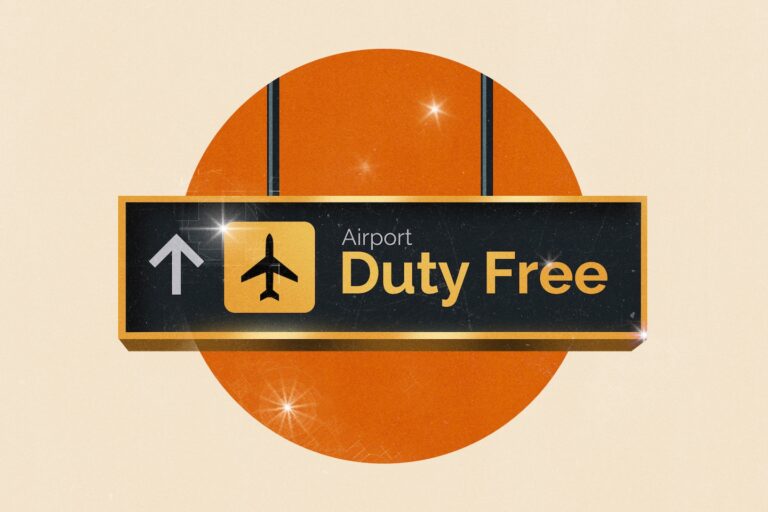On the perimeter, you’ll find a Starbucks with a great view of an airport runway, a Fendi cafe, a one-of-a-kind FIFA shop and the largest Ray-Ban store of any airport in the world.
“The more luxurious, the better,” said Ahmad Al-Abdulla, a spokesman for Qatar Airways.
But the setting wasn’t the only thing that caught my attention. If you are a member of the Avios loyalty program, you can earn one point for every approximately $1.30 spent in duty-free at Orchard — or anywhere else at the airport. And you can buy items with your points, a potential game changer in the highly competitive duty-free shopping world.
“I think more integrations like this will come to other airports as airlines try to increase the appeal of their frequent flyer programs,” said Beau Ragland, CEO of the travel app Voyeur.
Although many international airport terminals are trying to reimagine themselves as malls with boarding gates, duty-free shopping is not like regular shopping. You’ll find a variety of products for sale, potentially confusing prices and specific rules that will govern your shopping experience. Duty-free goods sometimes also require special handling.
What does ‘no duty’ mean?
Merchants in duty-free airport shops do not have to pay taxes and duties, so products may be cheaper than outside the terminal. You can usually find alcohol, electronics, jewelry, perfume, tobacco products and souvenirs.
Shelley Ewing, president of TierOne Travelsays duty-free shopping can sometimes save you money, although you shouldn’t assume everything is discounted.
“You can also buy products that are not available in your own country,” he added. “These items can be perfect as gifts for friends and family, or even just a souvenir of your travels for yourself.”
What are the rules of duty-free shopping?
Duty-free shops follow a special set of rules because of the tax exemption. In general, you must be a passenger on a departing international flight to make a purchase from a duty-free business at the airport. Customs authorities may require you to show your receipts for duty-free purchases when you enter the United States on your return trip.
Duty-free merchandise may also be subject to taxes on arrival, depending on where you are traveling. If you return to the States, you can bring up to $800 in duty-free purchases every 31 days. There are also alcohol and cigarette limits depending on where you are coming from.
Can I take duty-free goods on a connecting flight?
Duty-free does not mean hassle-free. That’s what Nina Weiss, an office manager from Allentown, Pa., discovered when she flew home to Philadelphia from Lisbon in December.
“I decided to spend my last euro on some white port,” Weiss said. When he changed planes in Montreal, he went through US Customs.
“They opened the bag and the box and wiped the bottle,” he recalled. “I passed the test, and they sealed the bag, and I was on my way. What stupidity. A bottle I just bought at the last airport suddenly became a hazard in the air?”
If you’re connecting to a domestic flight after going through customs, you’ll need to put any large liquids in your checked bag, says travel adviser Joanne Herd, founder of Travel to Girasole.
“Remember, TSA liquid guidelines apply when you go through security to connect to a domestic flight, so that full-size bottle of rum you bought at the airport in Jamaica cannot be brought with you,” he said.
Strategies for successful duty-free shopping
While it’s tempting to go crazy with duty-free purchases, experts warn against it. Here are more tips for smarter shopping:
- Avoid snacks and medicine. Not everything in an airport duty-free store is a bargain, warns Narendra Khatri, principal of Insubuy and a frequent air traveler. “Try to avoid buying snacks, over-the-counter medications and last-minute travel accessories like headphones and neck pillows at the duty-free shop if you can avoid it,” she says. “The extra money you pay for the convenience of buying these items at the airport usually outweighs any potential savings.”
- Time is the enemy. Whether you’re making a connection or boarding a flight, you probably have limited time to shop. That can prevent you from running a price comparison that you could do if you were outside the airport. “You can overpay,” warns Mahmood Khan, a professor of tourism and hospitality at Virginia Tech. He says that sometimes items are more expensive than they are in a local market, so you’re paying for the convenience of shopping at the airport.
- Remember your boarding pass and passport. If you want to buy something duty free, a sales associate may ask for your boarding pass and ID. This is required for tax purposes in some duty-free shops. But it’s not a hard-and-fast rule. When I was waiting for my plane in Ushuaia, Argentina, I tried to buy a snack at the duty-free shop. (Please don’t tell Khatri.) I didn’t have my passport handy, but after I explained to the cashier that it was my only meal of the day, she sold it to me anyway.
What’s next for duty-free shopping?
Doha’s Orchard can rival any upscale shopping mall in the United States. The closest airport comparison is either Dubai or Istanbul International. They’re both awesome, too.
In January, shortly after Orchard opened, Qatar Airways began awarding Avios points to its Privilege Club members when they shopped in the terminal.
The points you earn from your flight are conveniently deposited into your account two hours before departure. You can then spend the points on your stopover in Doha. It’s not too hard to imagine other airports copying the Doha formula. Well, maybe not the Orchard, but the point scheme. After all, the only thing more addictive than collecting points is spending them.
